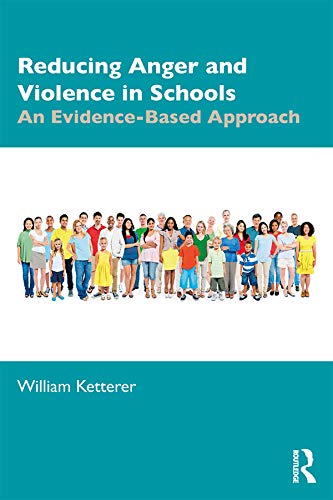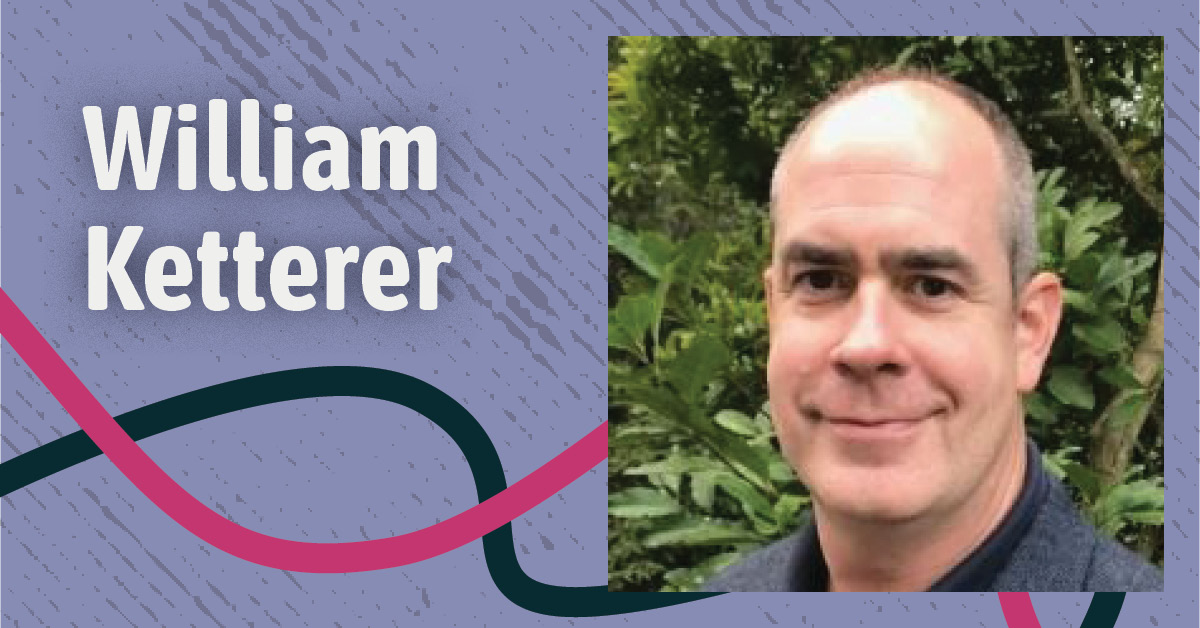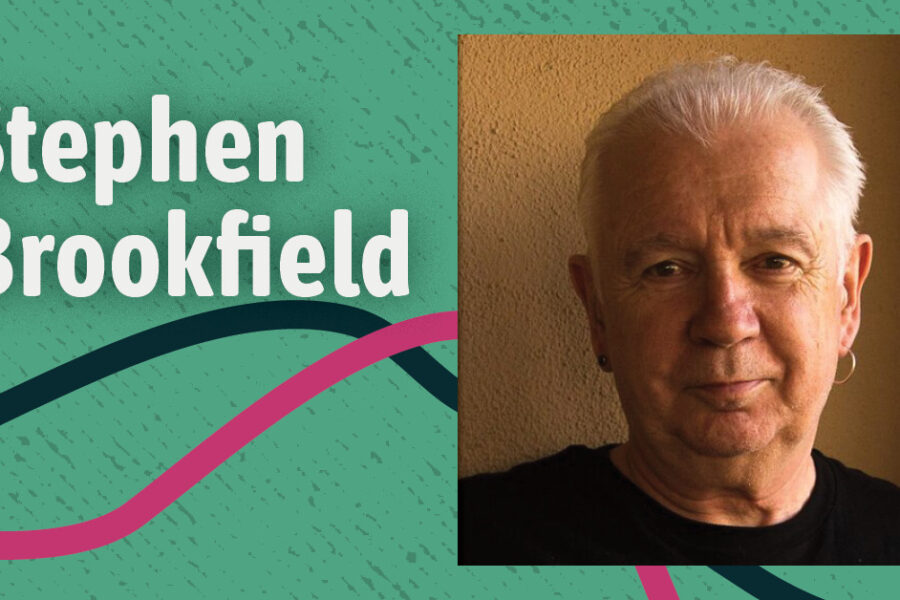“Violence is a failed attempt to hold people together,” says Dr. William Ketterer, psychologist and author of Reducing Anger and Violence in Schools: An Evidence-Based Approach. “Violence is like the spit-and-wish: something’s broken, you spit on it and hope that that will keep it together.” Unfortunately, from school shootings that make the national news to smaller but equally tragic acts of violence, many children today continue to resort to this worst way of maintaining a coherent identity.
It doesn’t have to be like this, says Dr. Ketterer, a 2011 graduate of Antioch New England’s PsyD program. “What holds children together is self-worth and self-esteem,” he explains, and these feelings “are only generated through relationships where the child looks up to the adult’s capacity to care for him or her, where there’s an empathic attunement and there’s a sense of belonging.” Schools can and should be places that foster these relationships and emotional growth. As Dr. Ketterer says, “Relationships keep us safe.”
These insights are born of deep reading in the literature of psychology and neurology—that’s why his book is subtitled “An Evidence-Based Approach”—but also of long engagement working directly with school age children, thinking about how people make meaning and hold together. Dr. Ketterer published his book in 2019, which led to an invitation to lecture in Vienna, Austria and his winning of the American Psychology Association’s prestigious 2021 Distinguished Contributions of Applications of Psychology to Education and Training Award. But though his last few years have been busy with accomplishment and accolade, you could say that his whole life has led to the development of this new and influential approach to school violence.
Choosing Child Psychology
In his twenties, Dr. Ketterer was a devoted climber and mountaineer who underwrote his passion by spending winters working with struggling children in Tennessee alternative schools. He hiked the Appalachian Trail, and for half a decade, every summer he lived in a different mountain range: the French Alps, the Andes, the Alaska Range. He considered making a career as an alpinist.
But then he met the woman he later married, and this helped him see a truth: there was no meaning in climbing, it was a distraction. He also started to realize that, more and more, he valued the work he was doing in alternative education. “I just wanted my energy to focus on helping children,” he says. “I thought that would be a more meaningful way to spend my time.”
To make a career of his work in alternative education, he realized he needed to get a Doctor of Psychology degree. He looked at schools across the country and eventually decided to attend Antioch’s PsyD program. He and his wife moved to New Hampshire.
 What he liked best about Antioch “is that they really focused on the problems of today,” he says. This emphasis on real-world social problems enabled Dr. Ketterer to follow his passions. “I work with kids,” he explains, “and I was very concerned about these catastrophic school shootings and violence.” As a doctoral student he began doing the theoretical and practical work that would eventually coalesce in Reducing Anger and Violence in Schools. He even adapted his qualifying exam later into a case study featured in the book.
What he liked best about Antioch “is that they really focused on the problems of today,” he says. This emphasis on real-world social problems enabled Dr. Ketterer to follow his passions. “I work with kids,” he explains, “and I was very concerned about these catastrophic school shootings and violence.” As a doctoral student he began doing the theoretical and practical work that would eventually coalesce in Reducing Anger and Violence in Schools. He even adapted his qualifying exam later into a case study featured in the book.
In his second year, Dr. Ketterer began a two-day-a-week practicum at Dartmouth’s Geisel School of Medicine, doing neuropsych evaluations on children. This dovetailed neatly with the format of the PsyD program, in which classes are held on Mondays and Tuesdays.
A Dissertation on Hikers
As he headed towards completion of the degree, Dr. Ketterer had to research and write a doctoral dissertation. For his research subject, he chose to investigate psychological change in people who were thru-hiking the Appalachian Trail—walking it continuously from end to end, Maine to Georgia (or vice versa). This work was informed by his own experience hiking the trail. It gave him an opportunity to explore how other people reacted to and experience that he had himself had, while collecting quantitative data.
“My dissertation was an absolute joy,” says Dr. Ketterer. “That was probably the highlight of my education.” He would visit the trail, find thru-hikers, and interview them. He found that everybody he interviewed got better—emotionally, psychologically—through hiking the trail. But the reason for this wasn’t because of nature, exercise, or eating trail food. “It was people,” he explains. “They all got better for the same reason. And that is that they felt that they were part of a community of like-minded people who were on this trail.”
Some of the interviews were easier than others. One group of thru-hikers refused to identify as such, insisting that they were “long-distance picnickers.” They only relented when he explained that if they wouldn’t take on the identification, he wouldn’t be able to include them in his study.
But at the end of every interview he asked the same question: “I’m a bozo here. What am I missing?” And they all said the same thing: that “the AT restored their faith in humanity…because it enabled them to experience the goodness of humankind.” He found this to be surprising and beautiful. As he puts it, “So the Appalachian Trail, which is this long trail, is about relationships, it’s about people.” He titled the dissertation “Psychological Change Among Appalachian Trail Thru-Hikers: An Interpretive Phenomenological Analysis.”
A New Approach to School Violence
The lessons learned through researching and writing the PsyD dissertation were of a piece with Dr. Ketterer’s emerging understanding of what causes psychological health and wholeness—insight that directly fed into his work around schools and violence. “What enables people to feel whole is relationships, when other people get them and understand them,” he says. “The hikers felt whole and good because other hikers understood them, got them.”
 Children have the same need to feel understood. “The variables that hold hikers together are the same variables that aren’t present when children hurt one another,” he explains. “Children hurt people at school because they feel misunderstood, because they feel angry.”
Children have the same need to feel understood. “The variables that hold hikers together are the same variables that aren’t present when children hurt one another,” he explains. “Children hurt people at school because they feel misunderstood, because they feel angry.”
Dr. Ketterer developed a psychoanalytic theory helping tie all of this together and suggesting how it might be applied. This work explores how to teach empathy and foster a sense of being understood within the context of childhood development.
Dr. Ketterer’s theory is a modification and an application of ideas first written about by the psychoanalytic theorist Heinz Kohut. He took Kohut’s idea of self psychology—in which you use vicarious introspection to make an effort to understand individuals from within their subjective experience, understanding the self to be the central agency of the human psyche—tweaked it, and then applied it in a new way. “I think the theory’s mostly the same, but I applied it in a new way,” he explains. “It would be like, if Kohut built a hammer with his theory, then I used the hammer as a boat anchor, because boy oh boy, in 2020 we need boat anchors, we don’t need hammers.”
In practice, this is a model of healing relationships. It works by developing in teachers, counselors, and coaches a relational approach where they use empathy to foster a feeling of belonging in their students. “What I find is that when teachers use this relational approach, it’s powerful, it’s like magic,” he says. “Kids get better so much faster. It’s night and day.”
Sharing Theory Where It Can Be Used
These theoretical and practical investigations led directly to Dr. Ketterer writing his book Reducing Anger and Violence in Schools. The book is intended for an audience of school administrators, counselors, teachers, and anyone else who works with children. It shares the theory and tools Dr. Ketterer and others in the field have developed. “A lot of teachers and people—they didn’t know that all these tools and all these ways of helping kids existed,” he explains. “I wanted to present these ideas in a way that they could use.”
For years Dr. Ketterer spent his Saturday mornings researching and writing the book while working full time as a consultant, in private practice, and helping design and set up alternative schools. He had help as he worked on the book from his colleagues Krzysztof Bujarski, MD and Dr. William Slammon, PhD. Both of these men ended up being listed as contributing authors to the book, and Dr. Bujarski, a board-certified neurologist, wrote the section on brain science. Reducing Anger and Violence in Schools has been praised as “a marvelous translation of clinical psychology into useful, meaningful, and practical tools for educators and others in their work with kids.”
Dr. Ketterer now spends his working time as a therapist and a consultant, working with school districts to implement these approaches to reducing anger and violence in their classrooms. Though Ketterer Consultants, a consultancy he set up in White River Junction, Vermont, he contracts his time to school districts and also arranges lectures and releases papers. Both Dr. Bujarski and Dr. Slammon consult through Ketterer Consultants. Dr. Ketterer clarifies, “They’re not employees. We’re all just a group of eggheads. Our shared vision is to get good science to schools.”
Dr. Slammon was actually a professor at AUNE and instructed Dr. Ketterer when he was a student there. The two of them became friends and professional collaborators, and now Dr. Slammon consults alongside his former student, bringing this model to area schools.
Developing Empathy, Worldwide
Moving forward, Dr. Ketterer continues to be engaged in theoretical conversation, following our deepening understanding of how the brain works, and staying attuned to the current needs of students and schools. He likes the role that he has found, bringing up-to-date science and theory to the people who can best use it to help children.
He also seems poised to continue bringing his theoretical work before wider audiences both nationally and internationally. He was recently invited to speak before a gathering of European psychologists in Vienna, Austria. This, he explains, “is like a big, fancy thing for psychologists. It’s the birthplace of psychoanalysis.”
In Austria, he gave a three-hour lecture before leading a demonstration of a tool that he’s developed that takes the form of a board game. For now, it’s called Empathic Explorations. It uses photographs and conversations to try to foster the ability to engage empathy. Explains Dr. Ketterer, the game was inspired by the questions, “Is there a way to teach someone how to think, feel, sense, and imagine another person’s perspective? And, is there a way to invite the other person to tell you if you got it wrong?” This final feedback was key, he says, because after the empathic guess, “You’re the one who can tell if I’m right or not.” In that way, he says, empathy is a hypothesis. And this game aims to help people improve at forming these hypotheses, while having fun.
Ketterer Consultants has also developed a “School Re-entry Plan” for schools facing the resumption of in-person classes after many months of pandemic-caused disruption. “If relationships hold kids together, and schools close,” says Dr. Ketterer, “then a lot of children may be missing very important relationships. So teachers, school counsellors, and other folks need to be mindful of the relationship needs when schools reopen.” He has distributed this plan for free to schools in Vermont, and posted it to his website, kettererconsultants.com.
All of this is a continuation of the mission Dr. Ketterer started years ago when he decided to trade in mountain climbing for helping children. And yet the work applies equally to mountain climbers and kindergarteners. “How do we help relationships?” he keeps asking. “How do we craft relationships for children that allow them to develop their self-worth and self-esteem.”



